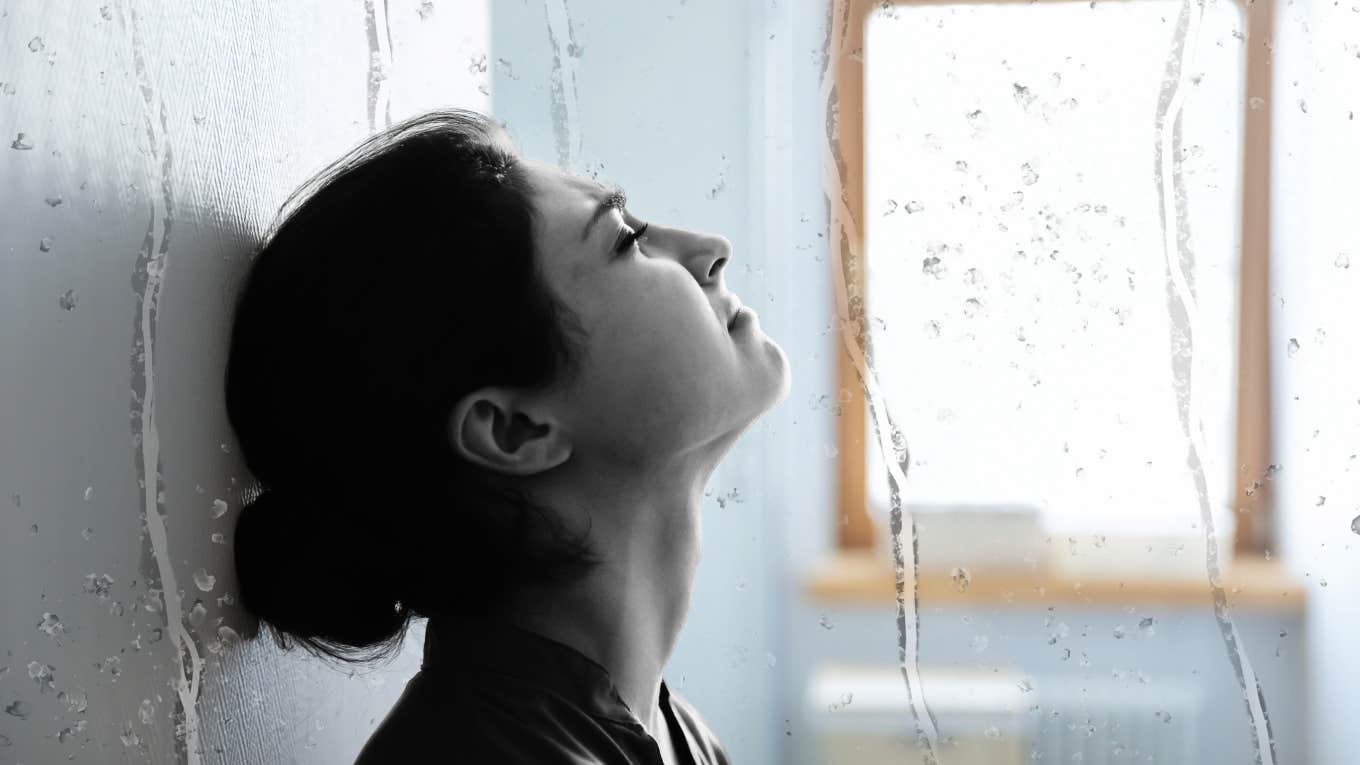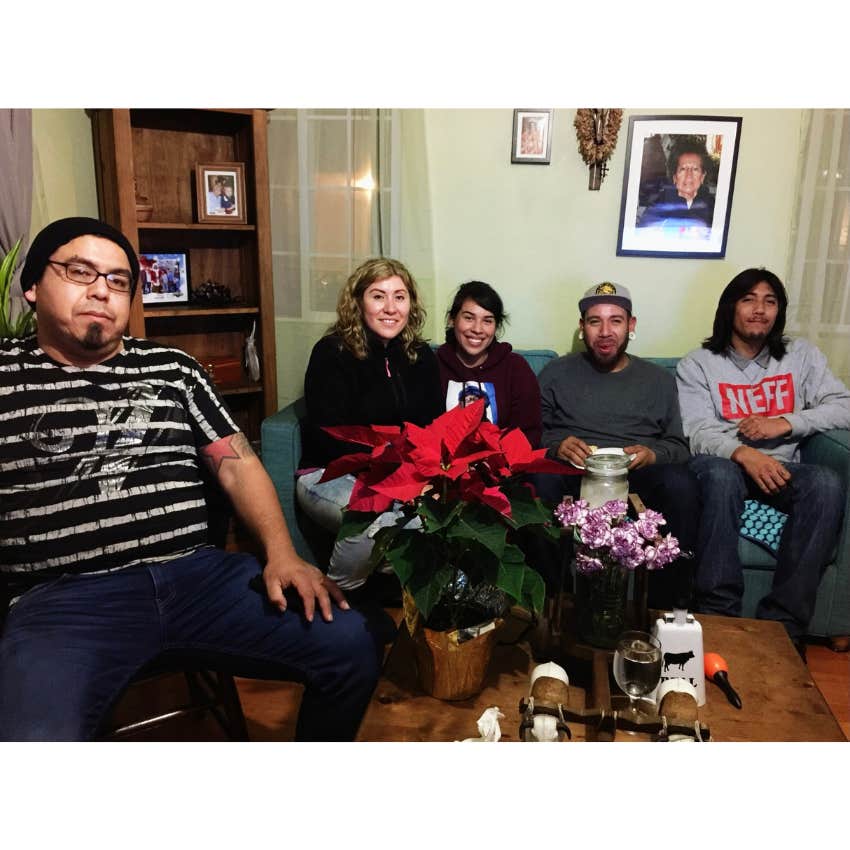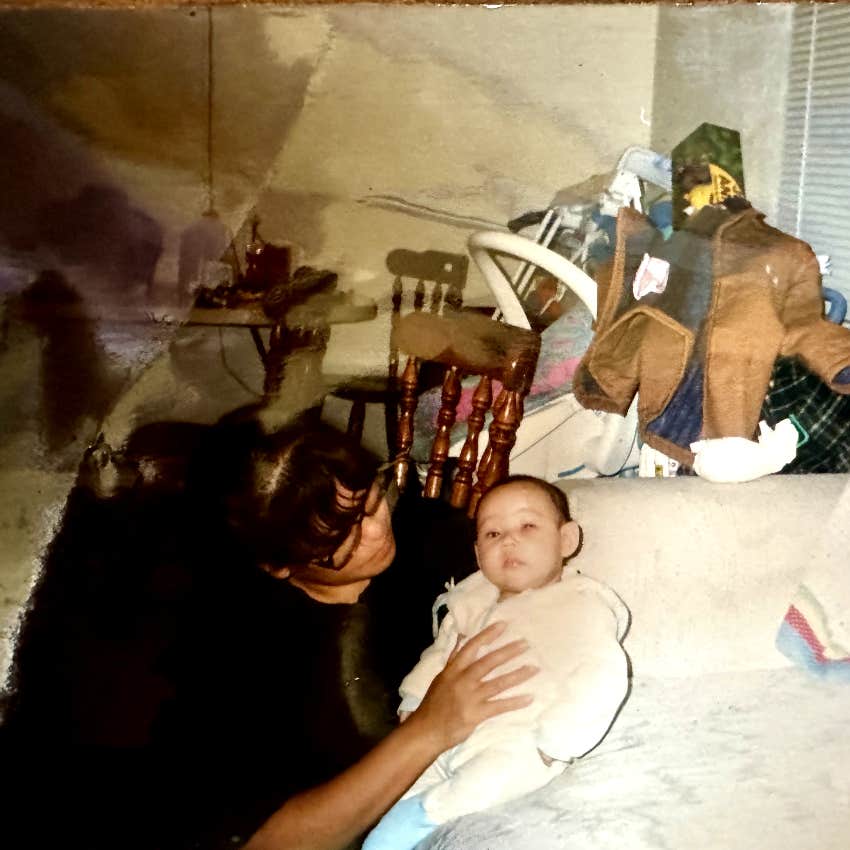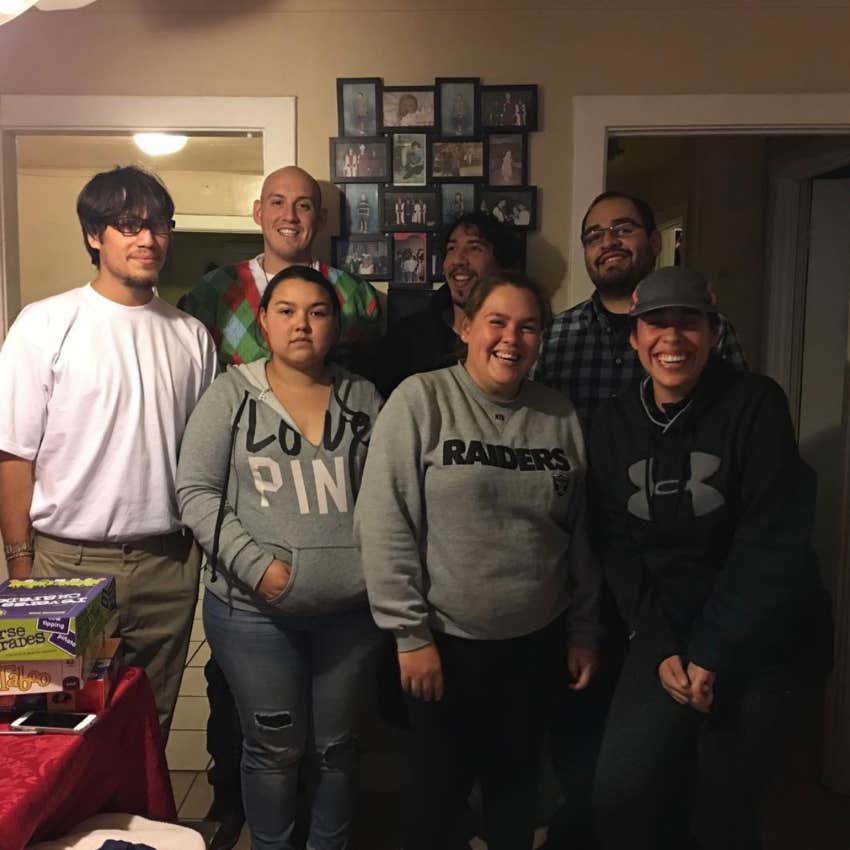I Grieved The Loss Of My Mom As An Infant, A Teenager, And An Adult
I was aware of the loss of a mom before I could even verbalize it.
 fizkes | Canva
fizkes | Canva Being adopted, I experienced the loss of my mom three times at different points in my life. Chronologically, the first time I experienced a profound loss was at the tender age of 3 months old. The next time would be at the age of 16 after my mom’s four-year-long battle against cancer.
Although my grieving process has been 25 years in the making, nothing could’ve prepared me for the rehashing of grief I felt for my mom at the passing of my biological mom. A lifetime of experience in grief has shown me that grief isn’t only five stages. There are stages before, after, and in between, eventually taking the shape of a complex Rorschach test.
December 2011: 16 years old
My mom was diagnosed with Acute Lymphoblastic Leukemia when I was about 12 years old. The big C came into our lives, and I was forced to grow up a little faster than my young mind struggled to understand.
Her first long-term inpatient stay showed me that grief isn’t linear nor does it only come after someone is gone. My dad, siblings, and I grieved my mom for four long years before she passed away in the comfort of her childhood home in Mexico. She passed away surrounded by her parents and siblings she hadn’t seen for years. I know now that it was the most deserved departure from this world.
The night she passed away I experienced a loss that was expected but felt like it was too soon. At 16, I understood that a child grieving their parents is the natural course of life. Regardless of how I felt “wronged” by the world (again, I was 16), it’s normal, it’s natural, for the parent to leave the child first. But I was ill-equipped to handle the death of my mom. I still needed her. My siblings and I still needed her.
 My adopted siblings and me (center) | All photos from author
My adopted siblings and me (center) | All photos from author
September 2014: 19 years old
After my mom passed away, my relationship with my dad soured. My teenage mind struggled to understand how my remaining parent could drown his grief at the bottom of a liquor bottle when I still needed him.
Everything came to an impasse one evening after a particularly nasty argument and the revelation of the longstanding lie about myself came to light. This evening, I learned about the termination of my birth mom’s parental rights and the subsequent guardianship awarded to my adoptive parents.
 Me at 3 months with my adopted mom
Me at 3 months with my adopted mom
And so, I grieved the loss of my mom, again — my birth mom. This time my grief was all-consuming. Instead of feeling suffocated by the emotions and grief of everyone around me, I now felt a cocktail of shock, fear, panic, and isolation. I felt like a fraud to my parents and my siblings. It not only redefined the loss of my mom and what it meant to me but in a way, I experienced the loss of my identity, and my entire family too. It wouldn’t be until I enlisted in the military and had unlimited access to mental health services that I would begin the journey to heal.
August 2021 – 25 years old
“Blood is thicker than water." I always took the quote to mean that familial bonds were stronger than the bonds forged by friendships. But it means the opposite — the family that you choose is stronger than the one you’re born into.
Before I enlisted, I stood by my choice of who was my family, specifically, my siblings, their kids, and my dad (and when I met my biological siblings, it meant them as well). While I was in service, my chosen family, my biggest support system became the people I was stationed with.
I was stationed in Japan when my biological brother called to notify me that our birth mom had died. During the call, I remember being stoic and confused about why I was being called as I never hid my resentment for her. I continued my workday and as the day went on, the weight of the knowledge started to drag me down. Because of the time difference, I waited until the next day to call my aunt, one of my mom’s sisters.
And I cried.
I cried from the guilt of casting judgment on the human being who I knew little to nothing about. I cried from the anger of being robbed of the opportunity to have her see how great I turned out without her. I cried for my siblings who also lost their mom.
 My biological siblings and me
My biological siblings and me
And I cried because I didn’t have my mom to call to make sense of everything I was feeling. I know a lot of people say similar things about their mom, but I genuinely believe my mom was a saint. She was patient, she was understanding, and she loved with her entire being. So, I knew that if my mom were alive, she would be disappointed in the bitterness that I allowed to fester in my heart. This was confirmed by my aunt who said that my mom would want me to forgive them both.
“Both?” I asked.
“Your birth mom for not being able to provide for you and your mom for not being strong enough to help you through these feelings when she was still alive,” she replied.
The dichotomy of being adopted is not binary. It’s not a matter of being only good or only bad. Most days I see the blessings that I’m surrounded with, that wouldn’t have come to pass without the choice that my birth mom made to terminate her parental rights.
Some days (and I will say, although they are rare, they do happen) I go in circles about the what-ifs. The traumatic loss that I felt at 3 months old wouldn’t be something that I would become conscious of until 19 years later. A lifetime of grief, currently 28 years in the making, will not heal overnight, it takes time and hard work. I strive to live a life that both of my moms would be proud of, a life that is long, healthy, and happy.
Monica Robles is a California-based writer and an editorial intern for YourTango.

